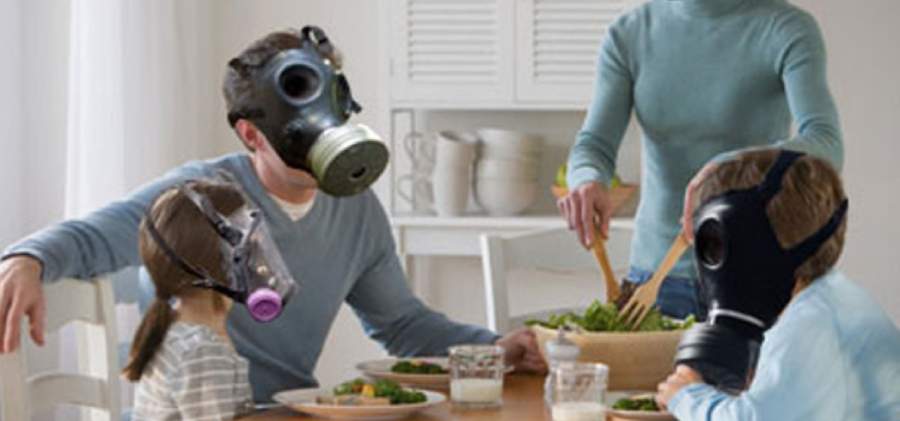Recently, Beijing citizens have been advised to stay indoors as the air pollution breaks all known records.
In light of this, we thought it was high time to talk about air pollution inside the house - which is often overlooked in favour of what happens outdoors.
In fact, studies have shown that the air quality in the kitchen can be up to [three times more noxious] than a traffic-lined street, so there's a clear need to keep the indoor air quality (IAQ) at a breathable standard.
What is Indoor Air Pollution?
Because IAQ is so often overlooked, you might not be completely aware of what the term "indoor air pollution" means, exactly.It's a mixture of pollutants from inside the building with those that come into the building through windows and other sources of ventilation.
Cooking appliances and tobacco smoke are among the worst offenders, as you might have already guessed, but there are other, more surprising sources of air pollution inside the average UK house:
| Pollutant | Sources |
| Nitrogen Dioxide (NO?) | Heating and cooking appliances |
| Carbon Monoxide (CO) | Heating and cooking appliances |
| Particulate matter | Cooking and aerosols |
| Radon | Natural ground gases |
| Environmental tobacco smoke | Cigarettes, cigars, pipes |
| Allergens | Moulds and house dust mites |
| Volatile organic compounds and ozone | Cleaning products, paints, and printers |
With a list this long, it might seem as though there is nothing to be done - after all, if natural ground gases are a hazard, what can we do about that?
Achieving Good Indoor Air Quality
A good IAQ rating can be achieved through demand-controlled ventilation, among other things such as air-filtering plants and, well, only smoking outdoors (which, we understand, is one of the greatest joys a smoker can have in a world that increasingly shuts them out).Simply fitting an extractor fan in the most problematic areas of the house will ensure a constant air turnover: the replacement of interior air with exterior air.
Pollutants vary from room to room: allergens and moulds tend to build up in the bathroom, whereas tobacco smoke is more common in living rooms and bedrooms, for example.
This means that some rooms will require more ventilation or a more rapid airflow exchange.
Generally, there's a "trade-off" between airtightness and energy efficiency: very energy-efficient houses tend not to be very well-ventilated, and houses with a lot of ventilation are not very airtight.
That said, there are a number of low-energy extractor fans in the Sparks Direct store, including models with incorporated motion sensors.
If you're concerned about the air quality of your home, speak with an HVAC contractor about extraction fans, or take a look through our store.
Better yet: why not ask one of our staff at our Archway showroom?
Header image via How Stuff Works




